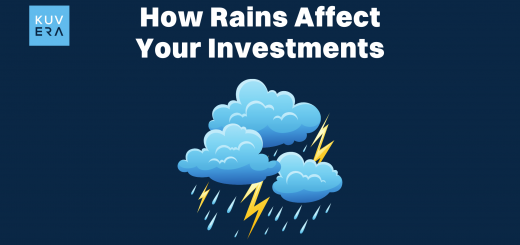Contrary to popular belief, life doesn’t end at retirement. In fact, for most people, life begins after they are done with their family and corporate duties. It is after retirement that people have the time, money, and wisdom to explore hobbies, travel, or just enjoy life with limited responsibilities.
In recent years, India’s corporate workforce has increased dramatically, and even in public sector jobs, government-supported pension plans are being gradually phased out. This means that the comfort of having a regular monthly pension will be inaccessible to most Indians in the future. Retirement planning has become more important than ever.

That coupled with the ‘living in the moment’ attitude that the youth seems to follow has revealed a dangerous level of unpreparedness for retirement. Multiple studies in recent years have shown that most young earners are not planning for retirement and some who are planning are not taking inflation into account.
What does the data say?
According to a survey conducted by Nielsen for PGIM Mutual Fund in 2020, most Indians give priority to current expenses over future security like retirement and health insurance.
The report clearly shows that more than half of the urban Indian population has not prepared for retirement.
Retirement planning is more common among people with higher incomes and in most cases, it is only done when there is surplus money after fulfilling their current lifestyle requirements.
One of the most alarming findings of the survey was that the average age most young Indians say that they will have a retirement plan is 51.
According to the report, even people who do their retirement planning early on in their life, do not consider inflation, emergencies and underestimate their financial needs which mean that they will not have sufficient funds to live comfortably after retirement.
Another similar study in 2021 shows that 1 in every 4 Indians has not even thought about retirement planning. While 50% of the population believes that their retirement fund is inadequate and will be exhausted within 10 years of finishing their working life.
Why are young Indians hesitant to plan their retirement?
Even though most Indians are worried about financial security, retirement planning in most cases takes a back seat. This could be because of several reasons;
- They prioritize other financial needs like a kid’s education, wedding, health emergencies, purchasing homes, etc. over retirement.
- Retirement seems like a distant prospect and people feel like they can postpone it until they have more money.
- Most people prefer to have a comfortable lifestyle in the present and postpone retirement planning.
- A large majority of people still believe that fixed deposits, health insurance, property, and savings will be enough to cover their retirement.
- There is not enough awareness and guidance about retirement planning and young earners are intimidated by the process.
- A good chunk of people does not know the amount of money they need to accumulate to live comfortably after retirement.
How should you go about planning for your retirement?
First of all, it is very important to accept that retirement is an extremely real and inevitable scenario that all of us have to experience. Not having a financial plan for this is extremely dangerous and can be disastrous for you and your family.
Planning as early as you can even with a smaller amount of money can go a long way to accumulate a considerable fund.
Some of the most common ways to start retirement planning are:
EPF: Employee provident fund is a mandatory provision by the government for salaried employees where you and your employer have to give 50% each towards your retirement fund. Click here to check how much funds you will accumulate through EPF when you retire.
NPS: National pension scheme is a voluntary scheme to make systematic contributions throughout your working life and pool a sum of money for your retirement. Here, you have to make the complete contribution. If you are already investing in NPS, you can calculate the funds you will accumulate through the NPS calculator.
Personal fund: These are personal funds or investments you make towards your retirement. While all your investments and savings might come into use during retirement, having a separate fund just for your retirement is considered a safer option.
You can start a goal-based investment plan for your retirement and invest in it regularly to have a dedicated retirement fund.

What should you consider while planning your retirement?
While all of these plans will help you accumulate some wealth for your retirement. How should you decide the corpus amount for your retirement?
Here are a few factors you need to consider:
Optimum age of retirement: This can defer according to your preference. The retirement age is generally around the age of 60 but most people prefer to retire early. Once you have a set age that you want to retire by, all your planning will be catered towards accumulating wealth by this age.
Inflation: Inflation is one of the most detrimental aspects of your savings. Since the value of money itself is decreasing over time, you will need to invest your money instead of saving it for your retirement. Click here to read in-depth about how you can tackle inflation.
Taxation: Depending on the type of pension plans you are investing in, you have to consider taxes as well. While pension plans generally qualify for tax deductions, they are also taxable. You need to figure out how much of your pension amount will go into taxes.
Diversification: Like all other investments, here also diversification is highly advised. It is very important to not keep all your eggs in one basket and have multiple plans to generate pension.
Lifestyle: The amount of money you need to accumulate to live a comfortable life in your retirement, depends on the lifestyle you aspire to have after retirement. Therefore, it is important to have a rough idea of the kind of lifestyle you want and the cost needed to attain it.
Conclusion:
As the data clearly states, young India is moving towards a dangerous financial crisis in their retirement. With healthcare advancements, average life expectancy has risen considerably. If we do not have adequate funds to support us during our most vulnerable stage, then not only us as individuals, but also the economy will take a considerable setback.
We must start investing toward our inevitable retirement as soon as possible. Click here to read more about various pension plans available in India.
Read more: Zen And The Art Of Investing
Watch/hear on YouTube: NPS Retirement Savings With Tax Benefits











